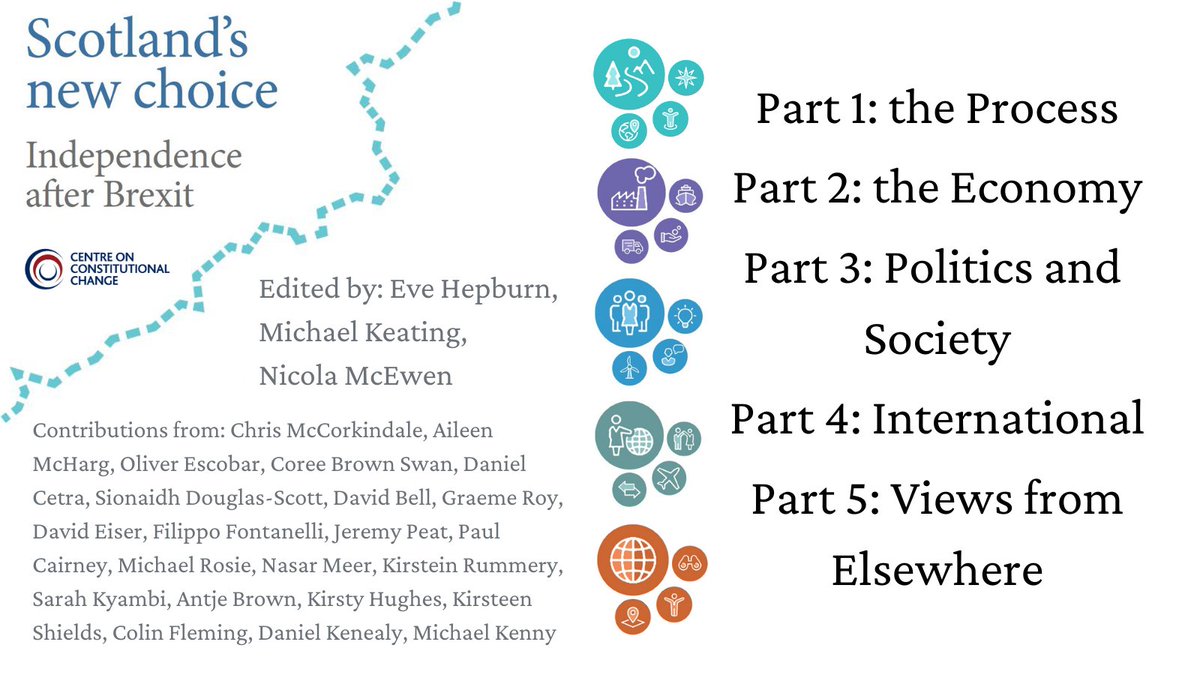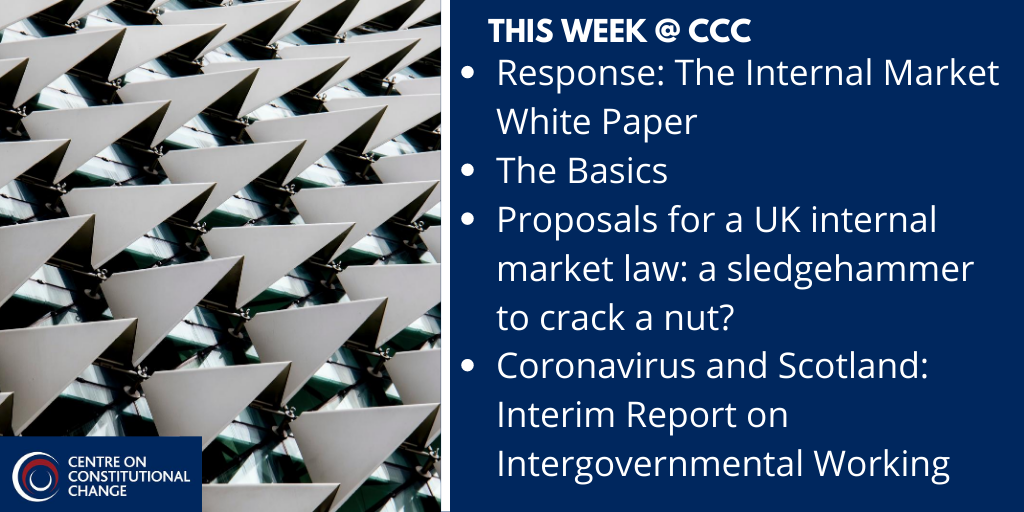1/ Today, the CCC is hosting an online event on the #internalmarketbill and devolution, with video available on Youtube on Friday with Michael Keating, @AileenMcHarg @McEwen_Nicola and hosted by @MureDickie
2/ Michael Keating begins, the internal market is, in many ways, a way of replicating what exists to faciliate the European single market. Two options are available: a single standard or principle of mutual recognition
3/ No internal market covers everything, how do we determine the exceptions? The EU operates under a very broad principle, allowing governments to override for public policy objectives. The UK Bill is much more narrowly defined.
4/ What about education? What about food standards? He asks
5/ And who will manage processes of regulatory harmonization? In this case, this will be managed by the UK ministers, they'll decide what those exceptions are and the UK government will monitor (with the CMA) the internal market
6/ Absent from the UK proposals are principles of subsidiarity and proportionality. The implications for devolution are, according to Michael Keating "really quite radical"
7/ Next up @AileenMcHarg on the technical provisions of the bill
8/ The market access commitment (underpinned by mutual recognition and non-discriminaton) is at the heart of the bill. Direct discrimination is different, however, than the EU law.
9/ On services, those authorised to provide services in one part are authorised in the whole, also applied in recognition of mutual recognition
10/ On exceptions: generally the market access committment doesn't apply to public services, regulatory requirements in existence before this bill is enacted (unless substantively changed - question here about what counts as substantive), serious public health emergency
11/ Enforced by "disapplication" of the rules which are in contravention with internal market bill - applies to primary, secondary, and devolved legislation.
12/ "Not quite true" says @AileenMcHarg that bill has not impact on devolved competences - devolved legislatures not able to override the market access commitment, also impacts territorial scope "Holyrood can only legislate in effect for goods / services produced in Scotland"
13/ Applicable regulatory standards apply on where a goods or services supplier is based, not on where they are trading. Sets up condition for regulatory competition throughout out UK.
14/ Next up @McEwen_Nicola on the claims and counterclaims of what this means for devolution. Is it a "powers bonanza" or a "power grab"?
15/ What actually does the bill do? What it doesn't do is increase the powers of the devolved institutions. Claim could be made for withdrawal act but not this bill, which explicitly limits powers over state aid.
16/ It may protect divergence that already exists but limits it going into the future. It does not limit the laws that they can make, but does limit the scope
17/ What does this mean? If the Scottish Parliament was to introduce legislation to reduce sugar to tackle public health issue or the Senedd sought to reduce plastic content, they could do so BUT they couldn't impose duties and regulations on goods entering their markets
18/ This may also limit the opportunity to learn from policy innovation/experimentation. It also reinforces the dominance of the English market in Scotland and Wales, due to the size of England as a market producer and service provider
19/ Was this legislation necessary asks @McEwen_Nicola ? She notes that the devolution settlement already gives the UK government competences over the management of the market, and the retained EU law means that these decisions could have been taken later.
20/ Trade is also central here, reinforcing the dominance of the UKG in the domain of trade.
• • •
Missing some Tweet in this thread? You can try to
force a refresh









